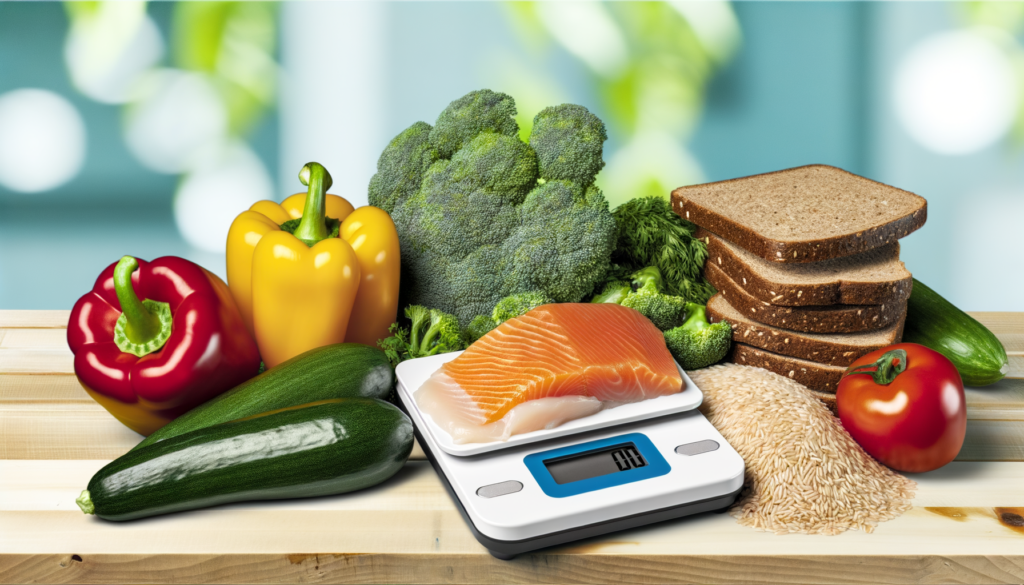Optimizing Sports Team Nutrition with Calorie Calculator Cloud
When it comes to enhancing athletic performance, a well-planned and balanced diet is crucial. For sports teams, managing the nutritional needs of each athlete can be a complex task, but tools like the Calorie Calculator Cloud can make this process much more efficient. Here’s how you can use this tool to enhance your sports team’s nutrition plans.
Understanding the Nutritional Needs of Athletes
Athletes require a diet that is rich in macronutrients such as carbohydrates, proteins, and fats, as well as essential micronutrients like vitamins and minerals. According to the MedlinePlus Medical Encyclopedia, carbohydrates are the primary source of energy during exercise, and they should make up 45% to 65% of the total caloric intake.
Protein is vital for muscle growth and repair, but it is a common myth that a high-protein diet alone will promote muscle growth. Strength training and adequate caloric intake are equally important. Athletes need only a slight increase in protein to support muscle growth, which can be achieved by consuming more total calories.
Fluids, particularly water, are essential for hydration and temperature regulation. Athletes should drink enough fluids to replace any body weight lost during exercise, with clear urine being a good indicator of full rehydration.
Customizing Nutrition Plans with Calorie Calculator Cloud
The Calorie Calculator Cloud allows you to customize nutrition plans based on individual athlete needs. Here’s how you can utilize this tool effectively:
-
Calculate Caloric Needs: Use the calculator to determine the exact caloric requirements for each athlete based on their specific sport, training intensity, and duration. This ensures that athletes are neither under nor over consuming calories, which is critical for optimal performance and health[5>.
-
Macronutrient Balance: Ensure that the diet includes the right balance of carbohydrates, proteins, and fats. For example, carbohydrates should be the primary energy source, making up 45% to 65% of the diet. Proteins should be around 10% to 30%, and fats should constitute 25% to 35% of the total caloric intake[5>.
-
Timing of Meals: The calculator can help you plan the timing of meals and snacks around training sessions. For instance, consuming carbohydrates and proteins within 30 minutes to 2 hours after intense exercise is crucial for replenishing glycogen stores and supporting muscle protein synthesis[5>.
-
Hydration Plans: Use the tool to create hydration plans that ensure athletes drink enough fluids before, during, and after exercise. This can include recommendations for sports drinks and other hydrating beverages[5>.
Real-World Examples and Case Studies
Nutrition education interventions have been shown to significantly improve athletes’ nutrition knowledge and dietary behaviors, which in turn enhance their performance. A systematic review on the effects of nutrition education interventions in team sports highlighted that such programs can lead to positive changes in eating habits, nutrition knowledge, and body composition.
For example, a team of soccer players might benefit from a nutrition plan that includes pre-game meals rich in carbohydrates, such as whole grain pasta or oatmeal, and post-game snacks that combine proteins and carbohydrates, like yogurt with granola or a sports bar. The Calorie Calculator Cloud can help tailor these plans to the specific needs of each player, ensuring they are well-nourished and ready to perform at their best.
Implementing Nutrition Education Interventions
Nutrition education is a key component of optimizing sports team nutrition. Here are some strategies to implement effective nutrition education interventions:
-
Work with Sports Nutritionists: Collaborate with certified sports dietitians (CSSD) who can provide personalized nutrition plans and educate athletes on the importance of proper nutrition. These professionals can conduct one-on-one meetings, group education sessions, and strategize with team management to ensure athletes are well-nourished[4>.
-
Use Various Modalities: Implement nutrition education using different modalities such as personal interviews, group activities, interactive workshops, or technological platforms. This ensures that the information is delivered in a way that is engaging and accessible to all athletes[3>.
-
Focus on Whole Foods: Emphasize the importance of whole, minimally processed foods such as fruits, vegetables, whole grains, lean proteins, and low-fat dairy products. These foods provide the necessary nutrients and energy for optimal performance[5>.
Conclusion and Next Steps
A well-planned and balanced diet is essential for enhancing athletic performance. By using the Calorie Calculator Cloud, you can customize nutrition plans that meet the specific needs of each athlete on your team. Here are some next steps to consider:
-
Sign Up for Calorie Calculator Cloud: Explore the various plans and features offered by the Calorie Calculator Plans to find the one that best suits your team’s needs.
-
Consult with a Sports Nutritionist: Work with a certified sports dietitian to create personalized nutrition plans and educate your athletes on the importance of proper nutrition.
-
Monitor and Adjust: Continuously monitor the nutritional intake and performance of your athletes and make adjustments as necessary to ensure they are meeting their nutritional goals.
By combining the right nutrition plan with the tools provided by the Calorie Calculator Cloud, you can help your sports team achieve optimal performance and maintain good health.








